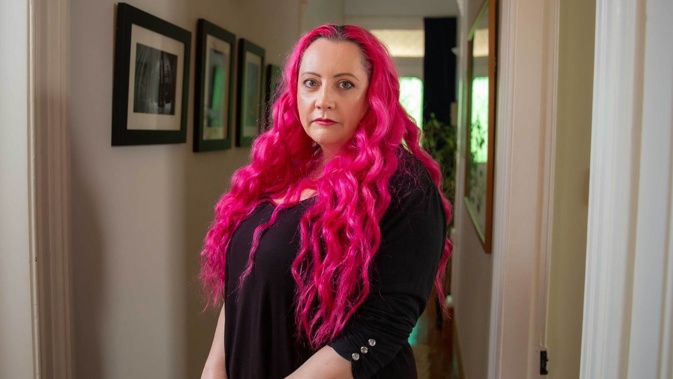
- High-profile scientist Siouxsie Wiles incurred more than $350,000 in legal bills in her employment dispute with the University of Auckland.
- The Employment Court has told the university to pay $205,000 of that total.
- The university breached Wiles’ employment agreement - but not her academic freedom - when she was subjected to intense abuse during the Covid-19 pandemic.
The University of Auckland has been ordered to pay $205,000 of scientist Siouxsie Wiles‘ legal bills after an Employment Court dispute.
The court ruled last year that the university had not breached Wiles’ academic freedom. However, it had breached her employment agreement relating to threats and harassment she received during the Covid-19 pandemic.
In a judgment published this morning, the court said Wiles’ legal costs for the case were in excess of $350,000.
She initially sought a contribution from the university of $175,000.
The university responded that it was entitled to claim “significant costs” from Wiles - more than $500,000.
However, it offered - on a without prejudice basis - to settle costs where they fell and later offered $65,000 to Wiles.
“Against that background, I consider it was reasonable and necessary for Associate Professor Wiles to file an application with the Court,” Judge Joanna Holden said.
“I note in particular the University’s rejection of Associate Professor Wiles’ offer and its insistence that there was ‘no winning party’ to the proceedings.”
Holden concluded the university should pay Wiles $205,000 within 21 days.
“I’m delighted that Judge [J.C] Holden has confirmed that I was the successful party and entitled to costs,” Wiles told the Herald.
“I’m also delighted with the substantial costs she has awarded me - an amount higher than the offer I immediately made to the university on receiving her initial judgement almost a year ago.”
‘Tsunami of threats’
A decision in July last year – which related to a “tsunami of threats and harassment” she received over her high-profile role during the pandemic – found the university did not breach Wiles’ academic freedom, but did breach her employment agreement.
Wiles filed complaints against the university in 2021, arguing her employer hadn’t taken enough steps to protect her against “a small but venomous sector of the public” that had become increasingly “unhinged”.
Wiles was the victim of “doxxing” – the act of publishing revealing personal details online. She learned from a journalist in January 2021 that her telephone number, personal email address, home address and an image of her home had been posted on a website opposed to the Government’s approach to dealing with the pandemic.
She also received numerous threats of murder and rape via email and social media.
Wiles said the judge found University of Auckland breached its health and safety obligations, breached its contractual obligations, its duties of good faith and upheld a personal grievance Wiles filed in 2021.
“The other thing that judge found was that the university’s conduct made everything worse and that was something that I definitely felt and argued really strongly and I’m really grateful that the judge agreed with me because it has been a very difficult few years,” Wiles said.
“It’s hard to be the subject of harassment, rape threats, death threats, all of those kinds of things, but for your employer to make the situation worse rather than supporting you, that has been really hard.”
Holden found the university’s approach to dealing with Wiles’ circumstances “breached its health and safety obligations to her in that it failed to provide adequate protection and support to her”.
 Dr Siouxsie Wiles took her employer to court in 2021 because she felt it had failed to protect her from a "tsunami of threats" which followed her Covid-19 commentary. Photo / Natalie Slade
Dr Siouxsie Wiles took her employer to court in 2021 because she felt it had failed to protect her from a "tsunami of threats" which followed her Covid-19 commentary. Photo / Natalie Slade
“I also find the approach adopted by the university in the period leading up to the lodging of associate professor Wiles’s personal grievance on 12 July 2021 amounted to an unjustifiable disadvantage.
“Associate Professor Wiles was entitled to expect the university to have put together a plan to keep her safe as she went about her work and to have supported her as she did so,” the judgment read.
Holden found that although the university’s approach was deficient in that it was “reactive and not expansive enough”, the university did make efforts to comply with its health and safety obligations within the confines of its existent health and safety framework.
Wiles said the University of Auckland would obviously want to come out of the decision in the “best possible light”.
“It’s worth reflecting on the fact that the personal grievance was upheld and this was rejected by the vice-chancellor back in 2021. It perhaps wouldn’t have had to go all the way to Employment Court if she had listened to our concerns.
“It would’ve saved everybody a lot of money and a lot of time,” Wiles said.
University of Auckland vice-chancellor Dawn Freshwater said she was pleased that the decision had been released after a three-and-a-half-week hearing in November 2023.
University of Auckland vice-chancellor Dawn Freshwater.
“This is a significant ruling from NZ’s Employment Court on academic freedom, which will be well received by universities in NZ and around the world.”
Holden found the university breached some health and safety provisions, but acknowledged the breach of Wiles’ employment agreement was “not intentional” and the university continues to “take steps to improve its response to situations” such as the one Wiles found herself in.
“Those factors, together with the circumstances in which the breach occurred, mean I do not consider this case is one for which a penalty for breach of contract is warranted.”
‘Nuremberg list’ abuse
Wiles, a microbiologist and science communicator, filed a complaint against the University of Auckland in 2021 because she felt the institution’s leaders had failed to protect her from threats which followed her commentary on Covid-19 and vaccination.
The complaint was expedited to the Employment Court, which held a three-week hearing in November. The hearing was closely watched because of its significance for academic freedom in NZ.
At the heart of the case was to what extent the university had a duty to protect her from external threats and whether these threats came as a result of her work for the university.
Wiles became a household name during the Covid-19 pandemic, carrying out up to 30 media interviews a day, and was made New Zealander of the Year in 2021.
The court heard that threats against Wiles began almost immediately after she began speaking out on Covid-19 in 2020, and became increasingly vitriolic and violent.
She was placed on a “Nuremberg list” and abused relentlessly online. She was also doxxed – her personal details and address posted online – and people came to her campus workplace to confront staff.
“These are not just one-off or random threats, this is an escalating tsunami of threats and harassment,” her lawyer Catherine Stewart said during the hearing.
Wiles’ legal team said the university failed to act despite she and her colleagues sending 60 emails about that harassment and holding seven meetings with human resources staff and managers.
When it later put in place measures to protect her – such as a threat assessment, email monitoring, and home security – they were belated or inadequate, the court heard.
During this period, the university used Wiles to promote its success. Yet privately, university leaders were urging Wiles to pull back from her public commentary if she wanted to reduce threats against her – an approach which she described as “victim-blaming”.
The university questioned some of her “outside activities” and raised concerns about her celebrity status, which one manager described as “Brand Siouxsie”.
‘Not an unfettered right’
The university denied unjustifiably disadvantaging Wiles or breaching its statutory obligations.
During the hearing, its lawyers argued that academic freedom was not limitless and had to be balanced against health and safety obligations.
They said the university never tried to silence Wiles and did everything in its power to protect her from harassment.
Lawyer Philip Skelton, KC, told the court the university placed great value on academic freedom and encouraged staff to provide media commentary if it was in the public interest.
However, academic freedom was a “privilege, not a duty”, he said.
It was not an “unfettered right” and had to be balanced against other responsibilities and legal requirements, including health and safety.
Skelton told the court the university was unable to control all threats, such as what people posted on social media platforms. It therefore focused on minimising and managing the risks, which it did through its staff risk intervention team and by liaising with police on certain individuals.
The university hired an external firm, Quantum Systems, to audit the systems it used to keep staff safe, and implemented its recommendations.
It later obtained an external risk assessment for Wiles from KPMG, and took on board its recommendations, the court heard.
Wiles was never unjustifiably disadvantaged in any way, such as through disciplinary proceedings or having benefits removed, Skelton said.
The university never instructed her to refrain from Covid commentary but did raise the “manner” of her tweets that related to university issues.
Take your Radio, Podcasts and Music with you









